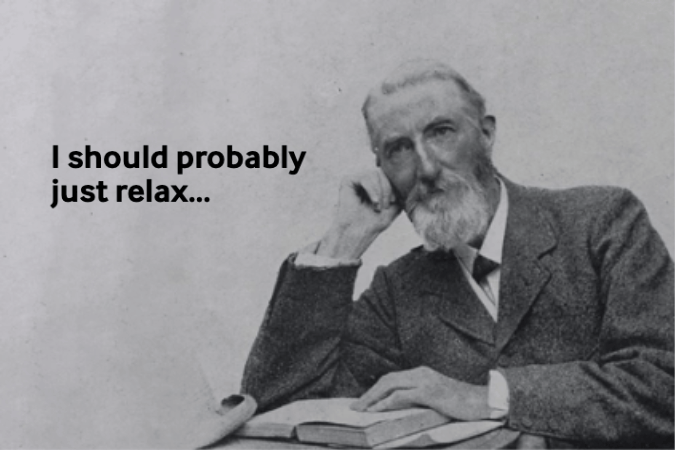Stoicism is Broken
There I said it.
The philosophy everyone loves has a problem and I’m digging in trying to fix it because I love Ryan Holiday and the writings of Stoics like Marcus Aurelius, but this key aspect is not sitting right with me: the incessant need for balance.
Feel free to fight me; I welcome the dialogue.
Our progress depends on imbalance
It started with a question: Can obsession be inherently good for the world? What makes an obsession healthy? Some people would say nothing and some people would say, “Beethoven.”
Uh, que?
In the case of someone like Beethoven who pursued his passion for music with great intensity, Stoicism would likely suggest evaluating the overall impact of his obsession. If his music brought immense joy and cultural enrichment to the world but had personal costs, Stoicism would encourage a careful consideration of whether those costs were acceptable in pursuit of a higher good.
Can you imagine????
Beethoven did suffer significant health and relationship problems, mental and emotional struggles, and grappled with periods of depression and existential angst which was exasperated by his unrelenting pursuit of musical excellence.
But what the hell is a world without Beethoven?
Emotional Turmoil
For Stoics, the aim is avoiding emotional turmoil—particularly that which comes with excessive attachment. But I cannot think of something worthy I have done that didn't have at least a little bit of emotional turmoil.
Can you?
I don’t think there’s anything wrong with a struggle. Actually, I think the signal you're doing some right is that you quite enjoy the struggle. You enjoy it for the right reasons: good work, great love, a hard-hitting piece of art. Hard, worthy things.
A "Balanced Pursuit"
This is a contradiction if I've ever heard one.
Stoics seek a balanced approach to passions, where the pursuit is rational, and the potential negative consequences are weighed against the potential benefits.
Can we check some key definitions?
Passion: strong, barely controllable; with fervor, intensity and enthusiasm.
Pursuit: to catch or attack; a shadowing.
Which one of these is balanced?
Responsibility and Fate
Now I agree with and encourage doing an honest evaluation of where your desires come from but if you can’t rationalize those desires or the intensity of them, it doesn't necessarily mean there's something wrong with you.
A calling is a calling. It’s different than a temptation. It’s different than a lust. It’s different than a distraction. And noticing the difference is our responsibility. Because fate pulls you, and my take is that your responsibility is the will to act on fate.
What if your obsession is merely the perfect set of circumstances required for you to do your greatest works?
The Real Thing I’m Afraid Of
Admittedly, my fear is that it’s easy to mistake balance for mediocrity.
Ordinary-ness is a beautiful thing, but there’s a difference between loving and cherishing the ordinary, the wonderfully boring and beautifully mundane, and settling for it.
All too often these days, I’m seeing the latter as a choice driven by fear, not love.
People are afraid to be pulled, to love too intensely, to lean in too heavily, to go too deep.
Of course it's scary––it's dangerous. But that’s precisely what makes it remarkable. And this is not a recommendation to be reckless (you already know that).
I could go on but the short version is this:
The way we have interpreted the Stoics’ idea of balance is bullshit.
The progress of society depends on the pursuit of passions––which is not without emotional turmoil.
Progress as a whole is dependent on proper obsessions.
Don't forget the outliers are the ones raising the whole fucking curve.
This post was originally featured in my weekly newsletter which you can sign up for below ⤵
